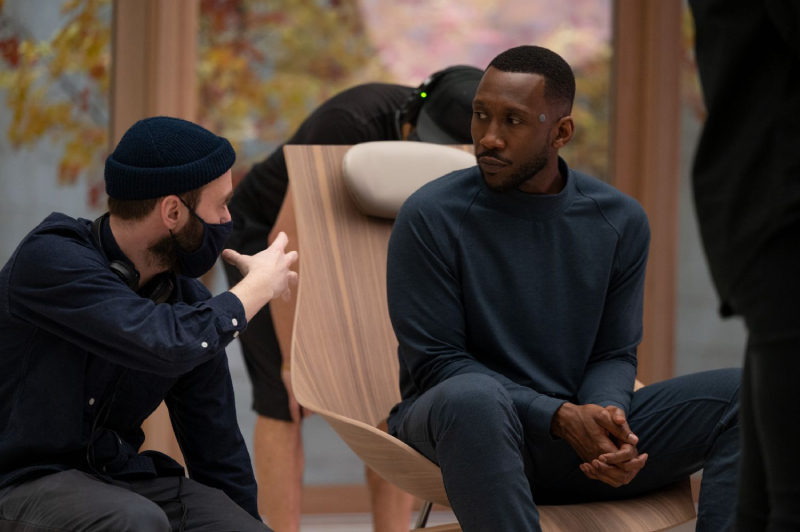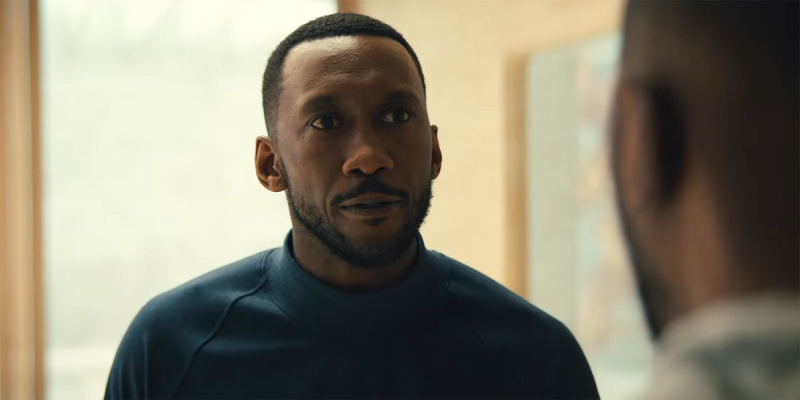Ben Cleary’s Swan Song was inspired by a personal experience with grief and death


They say writing helps with processing trauma and while many would follow the advice and create a personal journal, writer and director Ben Cleary took things further, by turning it into a movie.
Cleary's latest movie, Swan Song, on Apple TV+, centres around a loving husband and father who is diagnosed with a terminal illness. Unwilling to put his family through grief, he makes the controversial decision to replace himself with an identical clone.
A story 10 years in the making, Swan Song dives deep into grief and was spurred by the death of his friends, when the writer-director was still a youth.

"When I was 19, 20 and 21, I lost three friends three summers in a row. Losing a person with no goodbye does affect everybody who's left behind and I started to see the world or certainly started to navigate life constantly thinking about what would happen if someone else I loved passed away, or what would happen to my family if something happened to me," shared Cleary in an interview with Geek Culture.
"As a writer, those things start to bubble up in your subconscious and you ultimately get an idea like Swan Song. It's coming from quite an emotional, personal place. That was the origin of the story."
Although Swan Song was birthed from grief, Cleary wanted to weave in themes such as hope, memory, love, sacrifice and joy into the story.
This was largely explored through self-examination by main characters Cameron and his clone Jack, both played by lead star Mahershala Ali.

"That's at the heart of the story. This film could be about an examination of this other him. One of the key scenes — and it was a very difficult scene to write and shoot — but the fight scene. Some of the things that Cameron heard Jack say right as they were fighting felt like they came from somewhere in Cameron's subconscious," explained the director.
"Ultimately, perhaps there was some truth for him and that scene was always a really important one for me, trying to show what facing yourself and looking in the mirror like that could be for someone."
Writing such a story proved challenging, but nothing beat the demands necessary for shooting the scenes with Ali as both Cameron and Jack.
As the director, responsibility fell on Cleary to create as much space needed for Ali, especially the film required an emotional response as well as energy from the actor to press on.

The director tried various means and techniques, from over the shoulder shots and split screens, but none of them worked the way he needed them to. In the end, the director found that filming part by part and allowing Ali to react to himself in real time was the best way to capture the emotions and drama.
"I would shoot one of his sides first right — with Cameron [for example] — we choose who was like leading the scene. We would shoot that side and then afterwards when Mahershala flipped over to play Jack, I'd play the audio back from when he played Cameron. And so he was hearing that audio and the cadence and the rhythm of that so in a sense, he was acting across from his own voice," explained the director.
"And that was really powerful the first time we did that on set, once I tried it immediately, me and Mahershala were like, 'Yes, right that that was cool right?'. and then that was something that we used a lot. Mahershala has such an incredible sense of timing and rhythm and nuance that it really helped us to kind of film those scenes and make sure they felt really coherent I think."

Despite the sci-fi roots in Swan Song, of a future where cloning technology is possible, Cleary wants the sci-fi aspect to be secondary, and the human story pushed to the forefront.
Hence, the irony here is that despite having technology to clone human beings, medicine has not advanced enough to treat illness.
"The movie for me is really about that human story and not about the science of it all in the sense. You push away a lot of [emotional] conversations that you could have in a movie, you could pull the curtain back and see lots of conversation between the doctors and all that — and that could be a great movie — but it's a bit of a different movie," shared Cleary.
"I really want to focus on the human heart at the centre there. So we did speak about the technology in the film. We did huge amounts of research and the scary thing was that everybody I spoke to, all the experts who were researching, said it's a matter of when not if these technologies emerge. So for the story, it was good to know that everything we had in it was theoretical."
Swan Song is available for streaming on Apple TV+.
READ ALSO: Mahershala Ali moves into the spotlight in Swan Song
This article was first published in Geek Culture.